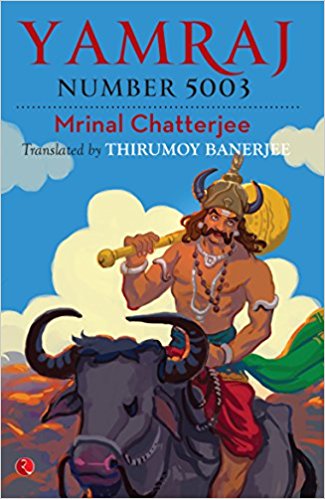DIRECTORS IN THEIR OWN WORDS
Bursting the bubbles we choose to inhabit is Dibakar Banerjee’s speciality and Shanghai delivers more than a prick to our collective conscience. He talks about the anger and the idealism necessary to tell the truth as he sees it

Photo: Appurva Shah
On Conceptualising Shanghai
As a young boy in school, I went to Chanakya Cinema in Delhi and saw Shashi Kapoor’s New Delhi Times. I was simply blown away. After Love, Sex Aur Dhokha, I wanted to make a political thriller, something on the lines of All the President’s Men and New Delhi Times. That’s when Urmi Juvekar, my co-writer, suggested I read Z by Vassilis Vassilikos. After that I read blogs, websites and journals about the violence in India, RTI murders, fake encounter cases, the Sheikh case, the Afzal Guru case, Binayak Sen’s trial, Safdar Hashmi’s murder. Vassilikos wrote about communism versus capitalism. Here in India, we don’t have fault lines around ideology, rather we have poor people and rich people, small town people and big city people, clean people and sweaty people. Shanghai explores these dualities.
We went to National Film Development Corporation of India to develop the project. I told them I’m making a film about politics, not about the lives of politicians, like Raajneeti. Since they don’t have purely commercial interests, they’re the best people to turn to. Most of my research is living and observing. My first three films came out of those, but there are some worlds that are to be found behind closed doors, like the police and the bureaucracy. [For Shanghai] I lived with IAS officers in Hyderabad to get the detailing, to hear them talk, observe their jargon and idiosyncrasies.
I am a good director but not a good writer. I can imagine details, concepts, set pieces, but cannot weave them in a sequence. There are jumbles and noises in my head. Urmi, on the other hand, is very clear about what we are going to say in the film. She brings structure. There are two ways to tell a film: ‘ab kya hoga’ and ‘ab kaise hoga’. Shanghai falls in the second category. You know what is going to happen but it is the telling that defines it. The idea is to hold the audience with the genuine dilemmas of each character.
On Cobbling A Cast And Crew
While writing Shanghai, I had Abhay (Deol) and Emraan (Hashmi) in mind. For minor characters, I always cast off the road. Instead of getting junior artistes, we pick genuine people who have never acted before. Before they start their screen test, where they stiffen up and try to deliver what they think is good acting, they talk about themselves. There lies the window of a true character, the way they talk, the language they use, the way they fidget with their hands, the way they dress. All of that is incorporated. Our casting workshop went to Latur one month in advance to shortlist and train locals from the city.
As a director, I do not believe in being some sort of distant genius. I am hands-on and well-planned. Everybody knows what they’re supposed to do. I’m mostly unflappable, almost mechanical. I work with the same team that I have worked with over the past six years. Nikos Andritsakis was the cinematographer in Love, Sex Aur Dhokha. In Shanghai, we wanted the audience to forget the camera. It’s an immersive experience, as if we just happened to arrive there, to catch a small town as it is. Instead of using unnatural harsh light, we would lug around lamp-posts for night shots to keep it real.
On Not Matching The Music
The background score of Shanghai captures the soundscapes of Mumbai, of where I live. I asked Mike McCleary to reproduce the street sounds — the celebration, religious and political music — which my assistants had been recording on their phones. I did not show the film to him. The moment you plot background music, you end up following scenes and cuts. But true music actually happens thematically. Like two distant things colliding, like [Richard] Wagner’s Ride of the Valkyries in the chopper sequence in Francis Ford Coppola’s Apocalypse Now. Directors like [Martin] Scorsese and [Quentin] Tarantino use incidental music which is not connected to the film.
On Feedback And Focus
During the last stage of editing, we show the film to a huge group of people. These are normal, random people — corporates, college kids. We bring them in batches to the office and get them to rape the film. When you see it with the audience, you get to know who is fidgeting when and which part of the narrative is loose.
Shanghai was kept taut. There is a famous saying by Rabindranath Tagore that loosely translates to ‘it ended and yet it didn’t’. That’s the correct aesthetic feeling you should get from a novel, a poem or a film. That was the dilemma in Shanghai. I often wondered if I should make it unrelenting or say a little more and lose the punch. I chose the former.
On Mistakes And Motivation
Typically after a movie, you pick up the pieces and try and promote it. Then you rest, take a break and start the next film. This break I’m going up to the hills for 10 days to Uttaranchal and coming back to start work on my next script. I don’t have a very good relationship with my films. I look back at them and realise they are full of mistakes. Some scenes are too long. Three impulses keep me going. One is to wipe out the mistakes of the previous film. Second is that usually after a film there is a temporary insolvency I face and the next film gets money. Third is to keep the team going. If I don’t get a film up and running, my team would disperse. This is the only way I know to make a living. Fortunately, there are five ideas inside me at any given point of time that are waiting to be made into a film. There is no dearth of films to make. So you just survive.

I live in Sewri, an area of mill workers. From the 20th floor of my complex, I can observe the daily lives of people around me in slums and chawls — the music, dance and celebration. This part of town keeps me clean. [And] If you live and work where the movie people are, like Andheri, the buzz affects you. It takes away a lot of your time and diverts it into shop talk.
On Movie Moments That Mattered
As a filmmaker, there are certain moments I consider important and all have to do with film viewing. When I saw Bandit Queen, I was about to set up my own ad agency and become a professional filmmaker. The film depressed me because I realised my fantasies of being a pioneer were shattered. That’s what Shekhar (Kapur) had done. He would define a lot of things forever to come. He set a precedent for films like Paan Singh Tomar, Maqbool and, for me, Shanghai.
Other defining moments are always around [Satyajit] Ray’s films. In Pather Panchali, there is a scene where Apu’s father comes back from this trip and doesn’t know his daughter has died. The whole sequence is treated wordlessly. His wife breaks down, but you don’t hear any sound. You see the whole scene unfold in a long shot over background music. In a way, I have been trying to follow that in very inferior ways — how to retain the emotion of a scene without loading it with information, which the audience knows or can imagine, concentrating rather on the emotion.
‘I don’t want to come across as a reformer or a big guy with big intentions. I’m just a filmmaker who wants to make films’
Another important event has been watching Taxi Driver with my school friends. We rented it, thinking it’s a porn film. We darkened the rooms, closed the drapes and there started Scorsese’s film. The four of us, normal Karol Bagh boys, didn’t stir. We saw it by mistake but we realised, “Sahi picture thi yaar”.
On Venting Anger Creatively
Shanghai has unsettled me in many ways. My wife says I’ve become darker in the past two years. Now that I see it, I realise it’s a very angry film, though that anger has consumed itself. I guess the most idealistic part of me wanted to shake things up by making it — to resonate, to make some people think. But ultimately it’s a selfish pursuit; you do it to get rid of some knot inside of you.
I can only make films about things that impact me, things that I’m seeing. For this film, in which I had to tell a tale about today, I’ve drawn from what I’ve seen to tell you what I feel. While researching the film, I stumbled upon truths that will accompany me for life. You hear of a guy killed in a fake encounter, you go through some dark moments, as you transfer it into your own life. You live through the last moments of that person. It’s not easy. We live in an illusion of civilisation but the breakdown into something terribly inhuman is possible.
I don’t want to come across as a reformer or a big guy with big intentions. I’m just a filmmaker who wants to make films, make money and be famous. Right now I’m talking about this because I have made a film about India’s development. Tomorrow it could be an escapist detective thriller. I’m just a man of the season with no loyalty, except to the film I’m about to make.
As told to Sunaina Kumar
Sunaina Kumar is a Special Correspondent with Tehelka.
sunaina@tehelka.com




